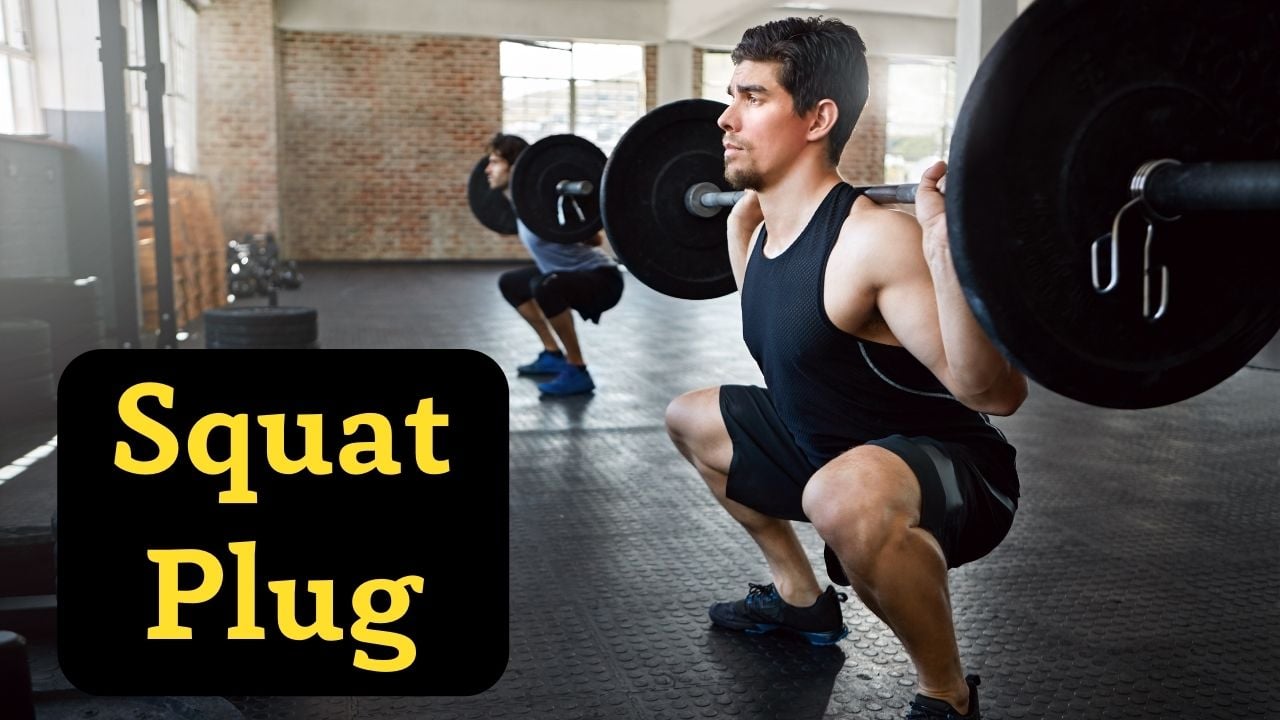If you’ve been around gyms or fitness forums long enough, you’ve probably stumbled upon the legend of the “squat plug.”
No, it’s not a new piece of training equipment. It’s just an idea that inserting an object rectally can somehow benefit your lifts.
The ideas can be silly (like preventing accidental “Fart releases” during heavy squats) or crazy (like making your core stronger for more reps)
Naturally, this is mostly the stuff of locker-room jokes and internet memes. Yet, the sheer persistence of the squat plug myth tells us a few things.
This shows how online misinformation can be very harmful, makes people feel worried about their bodies, and makes people wonder if it’s okay to ask a doctor about exercising.
So, is there any truth to the squat plug phenomenon, or is it all just a load of…well, you get the idea. Let’s explore the rumors, the rare medical exceptions, and why your focus is better spent on proven performance tactics!

Squat Plugs Real or Myth
Although the squat plug is a myth, it highlights some more serious issues that deserve a moment of reflection.
- Fitness Fake News: The internet is bursting at the seams with well-meaning but unqualified people dispensing health and exercise advice. This myth is a glaring example of why you should always check sources and be critical of extreme claims.
- Bodily Embarrassment: Fear of natural bodily functions, while sometimes played for laughs, can cause genuine anxiety. It’s okay to feel insecure, but those feelings shouldn’t control your workout experience.
- When to Get Help: If a physical issue seriously impacts your training, the internet is NOT the doctor’s office. A qualified medical professional can give you the right information and solutions.
To Stay Motivated: 150+ Gym Workout Motivational Quotes To Stay Fit
The Squat Plug’s Rumored Benefits
Let’s get into the wild claims circulating about why anyone would willingly put themselves through this. The most frequently whispered “benefits” of squat plugs include:
- The Great Containment: The top reason seems to be a fear of expelling gas, or worse, during maximum effort sets. While understandable to an extent, this isn’t an issue for which most lifters need an extreme solution.
- Prolapse Prevention: It’s theorized that a squat plug acts as a brace, somehow stopping rectal prolapse – a serious medical condition that can occur under heavy straining.
- The Power Plug: The most outlandish theory suggests a squat plug creates an internal base your core pushes against, leading to strength gains. Sadly, that’s not how our insides work.
Quick Debunk: None of these have sound medical backing. It’s okay to chuckle, but if any of these anxieties seriously impact your workouts, please skip the internet advice and speak to a doctor.
Know More: 100+ Leg Workout To Build Mass and Strength
The Squat Plug Medical Reality
Okay, let’s put the gym jokes aside for a moment. Devices similar to the mythical “squat plug” do exist – they’re called anal plugs, and they have specific medical uses under careful supervision.
These are absolutely NOT DIY performance boosters:
- Some cases of bowel incontinence may require the use of an anal plug to help patients by physically blocking the involuntary loss of fecal material. This is always done under professional medical guidance.
- Retrograde colonic irrigation is a procedure strictly controlled and used to aid people with certain bowel control issues. It has zero relevance to lifting weights at the gym.
Want to take your gains to the next level? Discover your daily calorie needs with our free TDEE calculator.
Conclusion
The squat plug? More like the squat plop of fitness nonsense. Leave the gimmicks behind and focus on what really works: good form, consistent training, and fueling your body right.
Your gains (and your dignity) will thank you.

Manish is a NASM-certified fitness and nutrition coach with over 10 years of experience in weight lifting and fat loss fitness coaching. He specializes in gym-based training and has a lot of knowledge about exercise, lifting technique, biomechanics, and more.
Through “Fit Life Regime,” he generously shares the insights he’s gained over a decade in the field. His goal is to equip others with the knowledge to start their own fitness journey.
